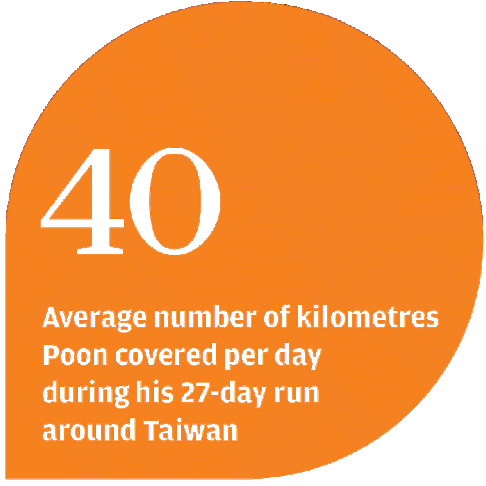Hong Kong's own Forrest Gump starts running... and does an entire circuit of Taiwan
Professional coach took lead from his favourite character Forrest Gump and went where his feet took him - around the entire island

“I just felt like running,” says Poon, 38 – giving the same reason as his favourite film character, Forrest Gump, who suddenly takes up running. “I felt that there was an urge that came to me and summoned me to run. There was no other reason.”
“When your aim is clear, you know a lot of difficulties and hardship can be sorted out. For me, I think I have really learned to enjoy running now. I am running for running itself.”
Having decided on Taiwan because he had recently finished competing in a marathon there, he bought an air ticket and, without a detailed plan or even a map, went where his feet took him - just like the character Gump, played in the film, Forrest Gump, by actor Tom Hanks.
Poon's feet took him from the southern city of Kaohsiung and all the way back, starting last January 11 and finishing – with just a few minor aches and pains – on February 6.
Also like Gump, the professional running coach, who lives in Wong Tai Sin, says he learned a lot about life along the way.
“I thought of lots of things about what had happened over the years,” he says. “I began to learn to let things go.”